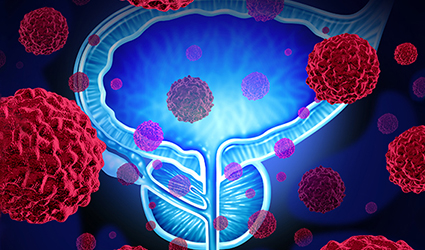New Technique to Combat Prostate Cancer
August 2, 2018
Source: MedicalNewsToday
 738
738

Research in prostate cancer could speed up drastically with a new breakthrough in prostate cancer cells grown in-vitro which could transform future drug trials. Developing prostate cancer drugs has been tedious as prostate cancer tissue does not thrive outside the body. It becomes difficult for it to survive once the tissue has been isolated from a patient.
Though trials on oversimplified cancer cells cultured in a laboratory are helpful, authentic tumor cells are the finest way to get a profound perspective of the mechanism of the drug in the human body.
A group of Researchers from Monash University in Melbourne, Australia, led by Prof. Gail Risbridger, has discovered a technique to cultivate tumors in the laboratory from donated tumor tissue. The resultant tissue is equally complex as the prostate cancer tumor cells.
"The lab-grown tumors will accelerate cancer research so that scientific discoveries benefit patients sooner," said Prof. Gail Risbridger.
In their recently published paper in the journal European Urology, Prof. Risbridger and her colleague Dr. Mitchell Lawrence explained how they tested current blood cancer drugs on the new prostate cancer model with promising results.
Dr. Lawrence said, "These lab-grown tumors have enabled us to rapidly compare different treatments and identify those that cause the most striking reduction in tumor growth."
He describes that the combination of drugs they tested was able to suppress "the growth of aggressive prostate cancer cells that do not respond to other treatments."
They possess the biggest repertoire of laboratory-grown prostate cancer tumors, presenting researchers with a faster, more efficient medium to trial new treatments for prostate cancer.
The technique, though new, assures a quicker detour for the scientists involved and, ultimately, enhanced therapies for patients.
By DduRead more on
- Things to Know before Buying Newborn Baby Incubators March 31, 2022
- Highly Resistant Food Poisoning Bug Responds to Antibiotics September 6, 2018
- Smartphone Based Diagnosis to Identify Mosquitoes Transmitting Infection September 5, 2018
- 3 Natural Plant Extracts Manufacturers on Drugdu.com September 4, 2018
- Shenzhen Chuanggan – Health Assessment Facility Supplier September 4, 2018
your submission has already been received.
OK
Subscribe
Please enter a valid Email address!
Submit
The most relevant industry news & insight will be sent to you every two weeks.



